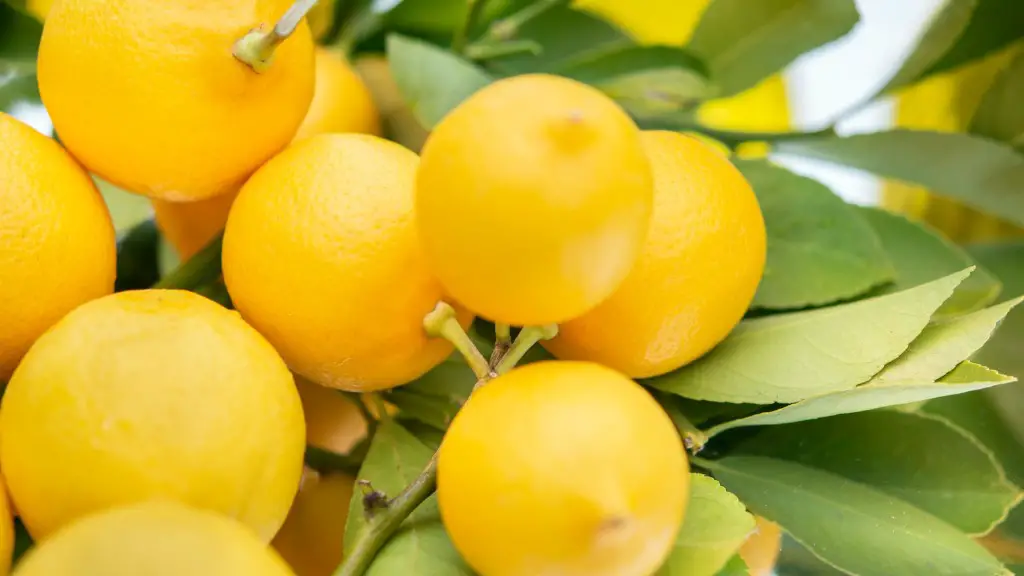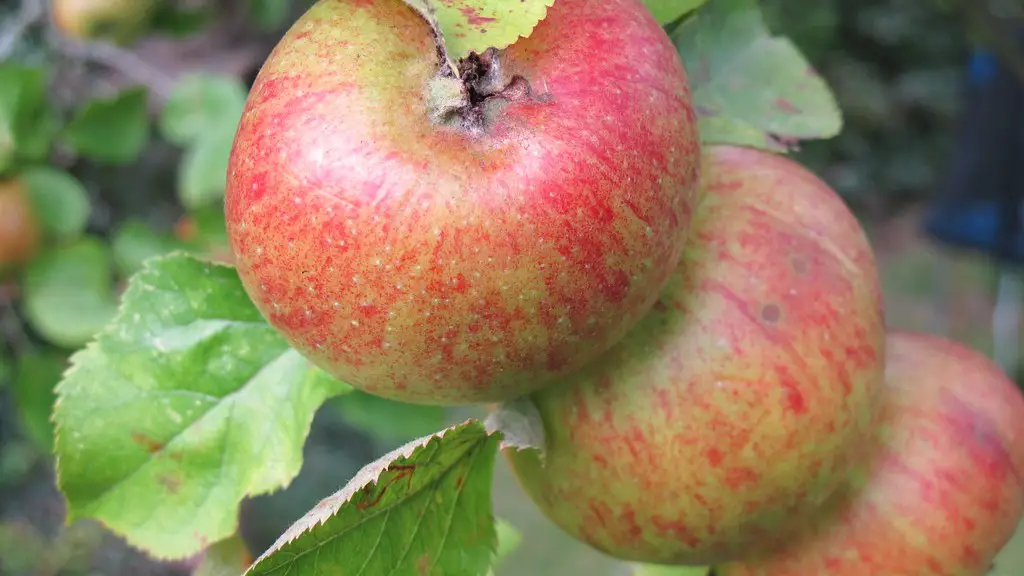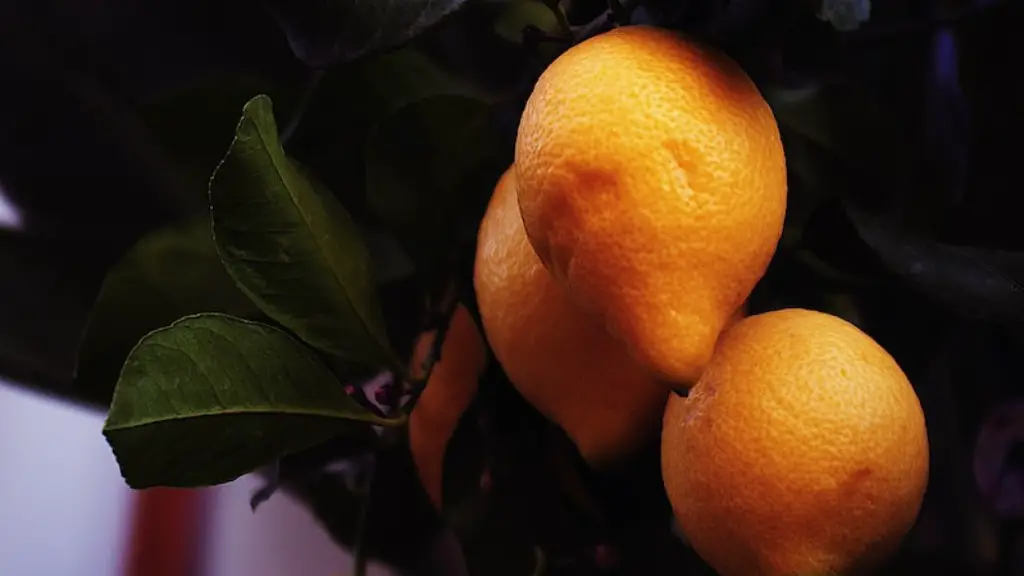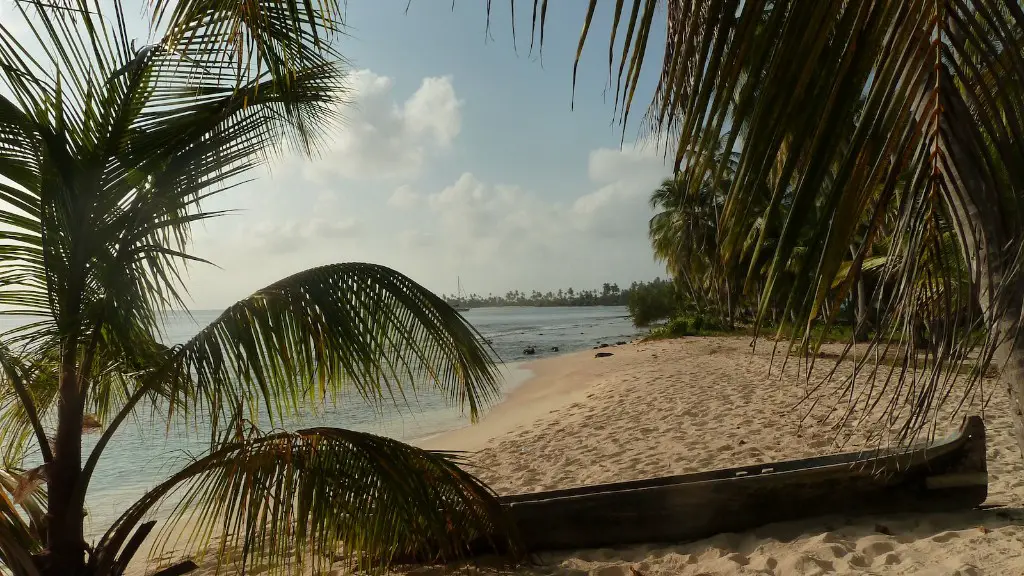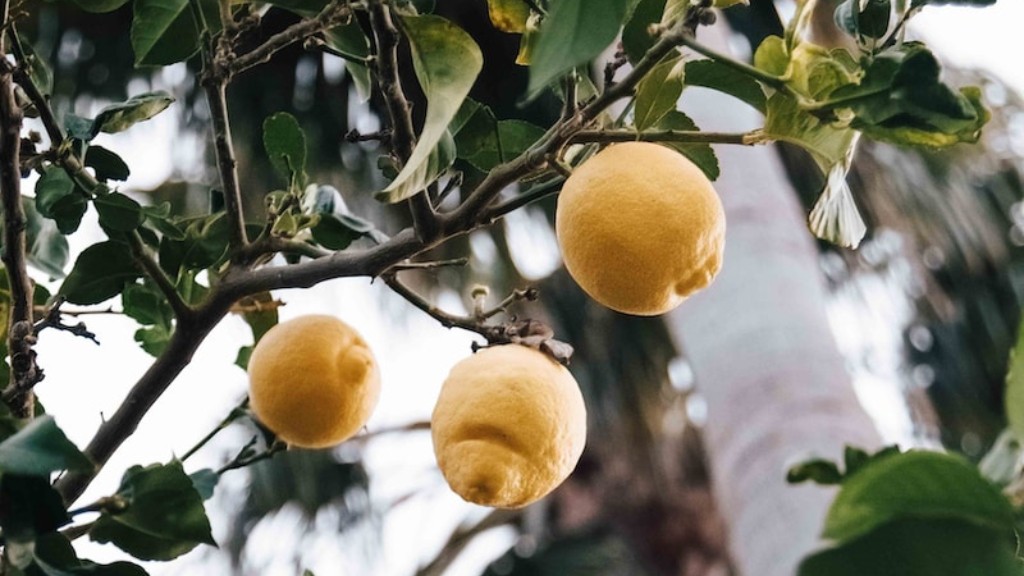Caring for a dwarf lemon tree is simple but requires regular attention. One of the best things about dwarf lemon trees is that they can take up a lot of space in a garden or patio. To ensure your dwarf lemon tree is healthy and producing juicy fruits, follow these care instructions.
First, before planting your dwarf lemon tree, you should do some research. Ideally, you should select a species that will thrive well in your climate. Consider the soil quality, light, and drainage of the area you want to plant your dwarf lemon tree in. If your soil is not suitable for growing lemons, you may need to modify it with organic matter and fertilizer.
Second, water your dwarf lemon tree regularly. Make sure to water it deeply once per week, and more often when the surface of the soil appears dry. To avoid fungal diseases, always water your lemon tree in the early morning. In hot climates, you may have to water your dwarf lemon tree twice per week.
Third, prune your dwarf lemon tree every year or every other year. Pruning helps keep your tree healthy and prevents overcrowding. You should remove any dead, dying, or diseased branches. Pruning should be done in the late winter, when the tree is dormant.
Fourth, fertilize your dwarf lemon tree. You should do this every year in the spring. Avoid excessive amounts of fertilizer, as this can burn your tree’s roots and leaves. You can use a slow-release fertilizer, making sure to spread it evenly around the drip line of your tree.
Fifth, inspect your dwarf lemon tree regularly for signs of pests. Common pests that can damage lemon trees include aphids, whiteflies, and mites. If you spot any pests, use organic insecticides or pesticides to control them and prevent damage to your tree.
Sixth, protect your lemon tree from extreme temperatures and frost. Your dwarf lemon tree should be planted in a sunny spot with good drainage, and away from any areas affected by frost. Make sure to cover your tree during cold or frosty nights, so it does not suffer damage from the weather.
Pest Control
As mentioned above, one of the most important things to consider when caring for a dwarf lemon tree is protecting it from pests. Different kinds of pests can damage lemon trees, such as aphids, whiteflies, and mites. To protect your tree and prevent damage, you should keep an eye out for signs of infestation. If you do spot any pests, use organic insecticides or pesticides to control them.
It is also important to inspect your dwarf lemon tree regularly for any signs of disease. If you notice any wilting or discolored leaves, you should check for any fungal diseases, as these can affect the health of your tree. If necessary, you can spray your lemon tree with a fungicide to prevent these diseases from spreading.
Finally, make sure to clear away any fallen leaves and other debris from around your lemon tree. Not only does this help to maintain the aesthetic of your garden, it also helps to keep your lemon tree healthy and free from pests and diseases.
Soil Quality
The soil quality of the area you want to plant your dwarf lemon tree in is an important factor to consider before planting it. If you find that your soil is too sandy, you should amend it with organic matter and fertilizer to improve it. Sandy soils are known to lack nutrients and can make it difficult for plants to grow. On the other hand, clay-rich soils can impair water drainage, so it is also important to check how well your soil drains.
You should also make sure to use fertilizers and mulches that are designed specifically for lemon trees. This will help provide the essential nutrients your lemon tree needs to stay healthy and grow. Additionally, you may want to use compost to improve your soil quality and enhance the growth of the tree.
Finally, it is important to adjust the pH level of your soil to ensure that it is suitable for growing dwarf lemon trees. You should test the soil to find out the pH level before planting your lemon tree. Additionally, you should be mindful of the limestone content, as this can affect your soil’s pH level.
Drainage
The drainage of the area you want to plant your dwarf lemon tree can affect its health and growth. You should make sure to select an area that has good drainage and is away from any areas affected by frost or cold temperatures. Make sure the soil is not compacted, as this can impair drainage and prevent your tree from getting enough water.
The drainage of the soil can also be improved by adding organic matter, such as compost or mulch. Additionally, it is a good idea to add a layer of gravel to the bottom of your planting hole, as this can help with water drainage.
Finally, you can also use raised beds or containers to plant your dwarf lemon tree. This can help to avoid waterlogging, as water will be able to drain away more easily.
Light & Sun Exposure
Another important factor to consider when caring for a dwarf lemon tree is the amount of light and sun exposure it gets. Dwarf lemon trees prefer sunny, sheltered places, away from strong winds. They can tolerate partial shade but will not produce fruits well in shadier areas.
Therefore, it is important to select an area in your garden or patio that gets a lot of sunlight and is sheltered from strong winds. Be sure to keep your dwarf lemon tree in an area that gets at least six to eight hours of direct sunlight each day to ensure it produces good quality fruits.
Finally, dwarf lemon trees can also benefit from wind protection, such as screens or wind breakers. This can help to keep your lemon tree healthy and shield it from harsh weather or winds that could damage its leaves or branches.
Temperature & Frost Protection
Temperature and frost protection play an important role in the health and growth of a dwarf lemon tree. Lemons are tropical plants, so they cannot tolerate extreme temperatures or frost. Therefore, it is important to select an area with mild temperatures that gets enough sun and is away from areas affected by frost.
If you live in a cold climate, you may have to cover your lemon tree during cold or frosty nights. You can use burlap bags, frost cloth, plastic sheets, or other materials to provide protection. Additionally, you should also keep your dwarf lemon tree protected from extreme heat and direct sunlight during hot days.
If in doubt about the temperature levels or frost conditions, you can always consult with a local nursery or gardening expert who can help you choose the best spot for your lemon tree.
Finally, you should also avoid overwatering your lemon tree during the winter months. This is because too much water can cause the soil to stay wet, which can increase the risk of frost damage to your tree.
